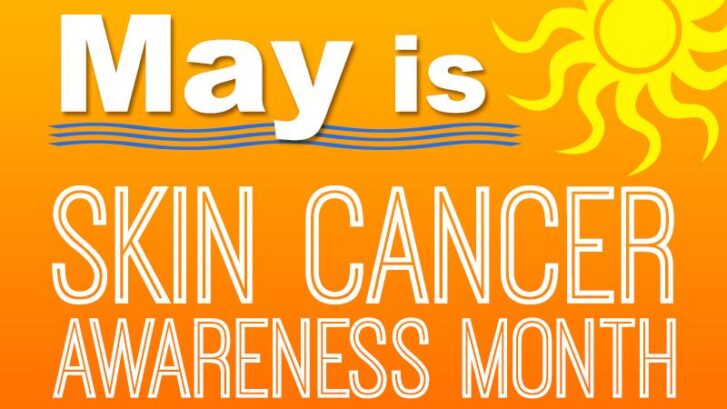Acupuncture Appears to Help with Pain Conditions
Once thought to be part of “woo-woo” hippie culture, acupuncture is increasingly making its way into mainstream medicine.

Once thought to be part of “woo-woo” hippie culture, acupuncture is increasingly making its way into mainstream medicine.

If you’ve been buying cage-free eggs, or eggs from your local farmer, or even raising your own chickens to lower your risk of salmonella, our concierge doctors in Jupiter have some unhappy news for you: Most chickens, ducks, and turkeys carry some form of the more than 2,000 types of salmonella, according to Craig Coufal, Texas A&M AgriLife Extension Service poultry specialist.

Because May is Skin Cancer Awareness Month, our primary care doctors in Jupiter want to remind you of the dangers of sun exposure and remind you of the best way to avoid it.
It’s important to know the facts about skin cancer and the sun, along with exposure to tanning beds, because the National Cancer Institute (NCI) estimates that this year 99,780 people in the U.S. will be diagnosed with melanomas of the skin, and that 7,650 people will die from this most deadly form of cancer.
But a proper use of an effective sunscreen can prevent most skin cancers.

From the time we’re little kids, any mention of bowel habits can trigger giggling embarrassment. We’re not sure why that is, because the intestine is simply another organ in the body. Nevertheless, our concierge primary care doctors in Jupiter know that talking about bowel disorders can be uncomfortable for our patients.

Despite the fact that most COVID-19-related restrictions have been lifted across the country, and the death toll has been dropping, it’s unfortunately a fact that the coronavirus is still with us, and will be for some time.

As we’ve just passed the second-year anniversary of the SARS-CoV-2 pandemic, our concierge primary care doctors in Jupiter think we should take a moment to reflect on how far we’ve come in dealing with this often-deadly disease.
It may not seem like it, because we still have to wear masks many places and haven’t fully returned to pre-pandemic life, but we have made progress.
For instance, we know more about how it spreads (through the air, especially in enclosed spaces), and how to protect ourselves (safe, effective vaccines and high-quality masks). And even though we’re still in the grip of of this still-relatively new coronavirus, and we’ve also found effective ways to treat it (monoclonal antibodies and anti-viral drugs).
And, believe it or not, the omicron variant of the virus may have turned out to be relatively good news, even though over 2,000 Americans a day are still dying from it.
But because it appears less lethal than its predecessors, omicron may make the pandemic more manageable.
The Centers for Disease Control and Prevention (CDC) released the results of a study late last month showing that the omicron variant—which is now the dominant variant both here in the U.S. and around the world—causes less severe illness, fewer hospitalizations, and requires less time in isolation following exposure.
This is partly due to the large numbers of people who have been vaccinated and/or infected with COVID-19, as well as to the fact that the virus appears to concentrate its effects in the upper airways instead of settling deep in the lungs.
The downside is that omicron is far more transmissible than earlier variants or the original virus. This is why so many people are catching it, and why—due to the sheer numbers of infections— hospitals are still being overwhelmed and an average of 2,200 people a day are still dying from the coronavirus.
But an NBC News analysis of COVID-19 case numbers at the end of January showed that Florida is one of the many states where omicron is no longer surging.
And chief White House medical advisor Anthony Fauci said in an interview with ABC’s “This Week” that he expects the wave to subside in “most” states by the end of February.”
“As we get into February . . . it is very likely that most of the states in the country will have turned around with their peak and are starting to come down with regard to cases and then obviously hospitalizations,” he said.
While cautioning that “our work is not done,” Hans Kluge, regional director of the World Health Organization (WHO) for Europe, released a statement two weeks ago that offered a glimmer of hope to a pandemic-weary world.
“The pandemic is far from over, but I am hopeful we can end the emergency phase in 2022 and address other health threats that urgently require our attention,” he said in a statement.
“This pandemic, like all other pandemics before it, will end, but it is far too early to relax,” he added.
One recent setback in the fight against SARS-CoV-2 was the finding from the CDC, confirmed by the drugs’ manufacturers, that two of the most common monoclonal antibodies used to keep at-risk individuals out of the hospital do not work against the omicron variant.
But again, there’s good news on that front, as well, because one monoclonal antibody—sotrovimab—is effective, and is still available at most hospitals even though Florida’s outpatient centers have closed.
Those who have mild to moderate symptoms of COVID-19 (fatigue, cough, loss of smell or taste, fever) or have underlying risk factors (those over 65, diabetes, obesity, kidney, heart, or lung disease or those who are immunocompromised) can check with area hospitals to see whether they’re offering this treatment.
In addition, other effective weapons in the arsenal against COVID-19 include the intravenous antiviral treatment remdesivir and the newly authorized oral antiviral drugs, Paxlovid or molnupiravir.
Two years in, we still don’t have all the answers, and until more people in this country and around the world are fully vaccinated, SARS-CoV-2 will not be fully manageable.
Each person who remains unvaccinated not only puts themselves at risk, but others around them, as well. And each infection offers the virus another chance to mutate.
Speaking of mutations, you may have heard of another new mutation of the omicron virus that some are calling “son of omicron” or “stealth omicron” because it’s so difficult to detect in PCR tests.
The new variant, designated BA.2 (omicron is BA.1), was first reported in California in November. It has since been seen in isolated cases in Texas as well as other countries. However, while remaining cautious, at this point most virologists don’t think it’s more dangerous or more transmissible than omicron BA.1. We’ll let you know if we learn otherwise.

In the fight against COVID-19, the top weapon in our arsenal is the vaccine, which has been proven safe and effective. But when people refuse vaccination, or experience a breakthrough infection despite having received the vaccine, one extremely effective treatment is the use of monoclonal antibodies to stave off serious disease.
Our primary care doctors at MD 2.0 in Jupiter are surprised, however, at how few people are aware of this potentially lifesaving treatment. Florida opened a number of clinics where those not sick enough for hospitalization can receive monoclonal antibodies. We want to let you know what this treatment is and what it can do.

To our concierge family practice doctors in Jupiter, Florida, tea is the second-best beverage you can drink for good health. It comes as a close second, of course, to drinking water.
The practice of brewing leaves appears to go back at least 5,000 years, but its actual origins are hazy. The most persistent legend concerns a Chinese emperor who drank a bowl of hot water that was boiled for sanitary purposes. He was in his garden when a few leaves fell into his bowl, surprising him with the resulting pleasant flavor.
But a great deal of recent research has found there’s far more to be found in a cup of tea than a soothing drink.

Our concierge family practice doctors in Jupiter, Florida, certainly understand the allure of crisp bacon, the snap of fried sausage, or the attraction of a hoagie piled high with a variety of processed meat.

Whoever dubbed the searing pain of acid indigestion “heartburn” got it right. The (usually) benign phenomenon can come on suddenly and have you wishing for an internal fire extinguisher to make it stop. Fast.
An estimated 60 million Americans experience heartburn at least once a month. Because it’s so common, our concierge doctors in Jupiter, Florida, want to explore the causes of heartburn, ways to prevent and treat it, and when you should be concerned about it.